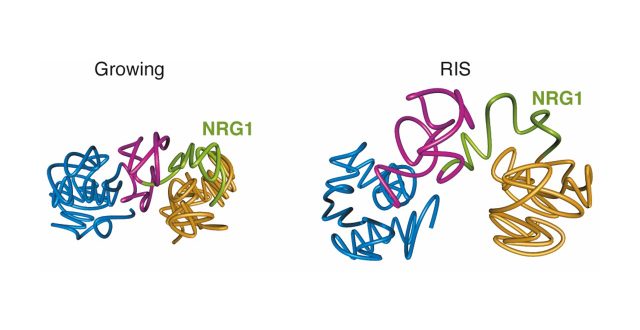Senescence is a state of stable proliferative arrest, generally accompanied by the senescence-associated secretory phenotype, which modulates tissue homeostasis. Enhancer-promoter interactions, facilitated by chromatin loops, play a key role in gene regulation but their relevance in senescence remains elusive. Here, we use Hi-C to show that oncogenic RAS-induced senescence in human diploid fibroblasts is accompanied by extensive enhancer-promoter rewiring, which is closely connected with dynamic cohesin binding to the genome. We find de novo cohesin peaks often at the 3′ end of a subset of active genes. RAS-induced de novo cohesin peaks are transcription-dependent and enriched for senescence-associated genes, exemplified by IL1B, where de novo cohesin binding is involved in new loop formation. Similar IL1B induction with de novo cohesin appearance and new loop formation are observed in terminally differentiated macrophages, but not TNFα-treated cells. These results suggest that RAS-induced senescence represents a cell fate determination-like process characterised by a unique gene expression profile and 3D genome folding signature, mediated in part through cohesin redistribution on chromatin.

細胞老化において転写依存性コヒーシン再分布がクロマチンループを再編する
WRHIからのお知らせ おすすめ
細胞制御工学研究センター 木村宏教授と成田匡志特任教授の国際共著論文
“Transcription-dependent cohesin repositioning rewires chromatin loops in cellular senescence”
が、 Nature Communications に掲載されました。
(DOI: https://doi.org/10.1038/s41467-020-19878-4 )
詳しくはこちら
<Abstract>
